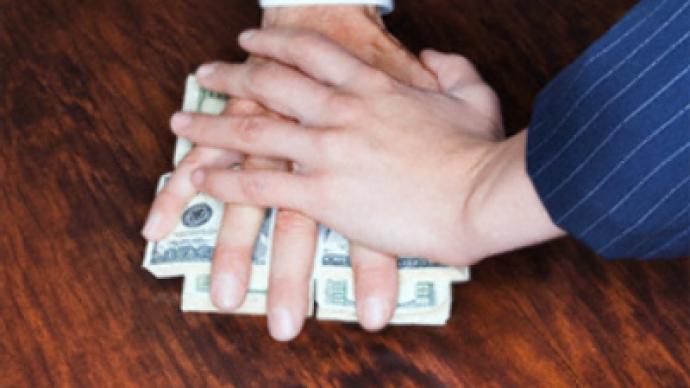Barack Obama battles the white man’s new burden

Barack Obama, the 44th president of the US, is in the unenviable position of having to mop up after George W. Bush’s eight-year ham-fisted rule, while tackling the white man’s eternal burden of greed and corruption.
America’s relatively brief history has come full circle with the election of Barack Obama. A nation that was forged in the fires of slavery, and tainted by the slaughter of its native population, is now presided over by a man whose father hails from Kenya, Africa. For reasons directly connected to America’s past, and not all of them pleasant, it is a personal story of triumph that could only have been told in this part of the world. But the story continues, we are all characters, and nobody knows how it will end.
Once upon an economy, during the 1980s ‘culture of narcissism,’ former US President Ronald Reagan and UK’s Margaret Thatcher rolled out their audacious survival-of-the-fittest, laissez faire doctrine. The primary purpose of this economic overhaul was to stimulate capital accumulation. The plan worked stupendously well, at least in the short term. But Reaganomics, which was supposed to “lift all boats,” in reality only lifted the yachts and battleships.
“The reorganization of the regulatory agencies and of the federal judiciary strengthened the power of business at the expense of consumers, organized labor and racial minorities,” wrote Arthur M. Schlesinger, Jr. in his book, The Cycles of American History.
In other words, Ronald Reagan and Lady Thatcher threw an all-expenses paid party for the corporations and their financial backers. Now, the present generation, hangover notwithstanding, has been charged with the unhappy task of cleaning up the global hotel and paying for the extensive damages. In fact, the damage has proven so extensive that it has triggered a debate as to whether or not America has become full-blown socialist or not. Meanwhile, the federal government, previously written off as dead or redundant, has returned with a vengeance. But still, the whole mess requires a good leader.
And great leaders never shy from a great crisis. Indeed, prominent leaders, like Churchill, Roosevelt and Stalin require crisis to prove their mettle and get their statues in the town square.
Now, Barack Obama, one of the most hyped-up political figures in American history, just might prove to be the right leader at the right time. And although he is not confronting the specter of war, or global terrorism ala George Bush, he is staring down the barrel of the darkest economic crisis since the Great Depression. In other words, to quote Bill Clinton’s memorable line, it’s the economy, stupid.
Just how bad is the economic situation? It’s so bad that President Obama himself has been accused of making the threat of a global economic collapse a self-fulfilling prophecy by directing so much negative attention to the idea; It’s so bad that Barack Obama is holding up Canada, a nation that usually only attracts America’s limited attention span during the hockey championships, as a model of sound economic discipline; It’s so bad that Barack Obama has been forced to go begging for $1,197,000,000,000 (or, for those who get dizzy staring at too many consecutive zeros, that’s one trillion, one hundred and ninety seven billion dollars) to bailout everything from banks to bog land.
As The Wall Street Journal reported at the weekend, “Two weeks after passing a $787 billion economic stimulus plan, the U.S. Congress returns next week to take up another spending bill, this one with a price tag of $410 billion. Unlike the emergency recovery plan rushed through Capitol Hill in a matter of weeks, this covers the regular functions of government, from education to agriculture.”
The overall situation does not bode well for a quick Obama-led turnaround. For example, where are the best investments to be found today when stocks are retreating daily? Besides the gold markets and Wal-Mart, savvy investors are presently making a killing in the eastern European outposts, like the Czech Republic, Poland, Hungary, Romania and the Baltic States. Although the math is terribly fuzzy, what essentially happens is that it becomes much more expensive to insure these countries’ currencies as they tumble. Thus, investors hit the jackpot betting on the collapse of currencies and rising credit-insurance prices. What is disturbing is that this ‘investment,’ despite the fact that it turns a profit for some people, sounds more like cannibalism than capitalism.
And for all of Obama’s brave talk about punishing corporate executives who pull in astronomical salaries as their companies sink, getting back the money is mission impossible.
In what is probably a desperate political charade to show the public that Super Obama is fighting for their cause, The Wall Street Journal (a very busy paper these days, it seems) reported that the U.S. is demanding that Swiss bank UBS “disclose to the Internal Revenue Service the identities of 52,000 private customers – more than double the number previously thought to be implicated in the tax probe.” Things must be truly bad if the U.S. is prepared to go knocking on doors in quaint Switzerland in the hunt for tax avoiders.
Perhaps the Obama administration could hold a general amnesty day, where tax cheats can come clean without fear of doing jail time or paying fines?
Clearly, the US government is starting to take the issue of securing its financial system a bit more seriously. For the rest of the world, we can only hope that the very articulate American president is more than just a great speechmaker and has what it truly takes to address this problem of truly historic proportions.













